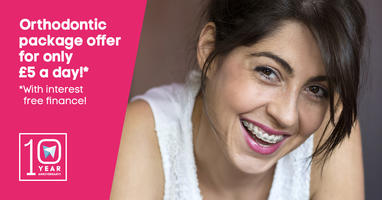There is no doubt that properly brushing one’s teeth is essential for good dental hygiene. When wearing braces it takes added diligence to maintain good oral health. There is also no disputing that with braces it is harder to keep teeth clean. Why is there a problem with keeping teeth clean when braces are being worn? Food can get caught on the wires and it is harder to keep them clean than it was before the braces were in place. So, proper, vigorous brushing is even more important if you wear braces. This applies regardless of whether your braces are metal or plastic. Next, it raises the question: which type of brush is best?

Which Is Better- Manual or Electric Brushing?
The consensus is that electric tooth brushing is better than manual brushing. There are many reasons for this but the prevailing wisdom is that you will tend to brush longer with an electric brush than with a manual brush. Most dentists recommend a brushing time of at least two minutes twice a day. But also important is the “kindness” of your brushing to the gums and the braces themselves. Here again, the electric toothbrush seems to be able to reach the crevices where food lurks and does it more gently. Not only are hidden, hard to reach food particles that hide away from the bristles a concern but plaque as well. Using an electric toothbrush is especially effective at removing specks that are hidden away and, as a result, it can prevent the start of gum disease. Some experts think that patients using an electric brush find it less tiring and, thus, will brush longer. This is also true of patients who may suffer from arthritis or lack manual dexterity. But don’t despair if you are in love with your manual brush. Just remember that with braces you have to brush more diligently and longer.

Which Features Are Most Important?
Small Brush Head, Wider Handle: Whether you use a manual brush or electric brush with your braces, you should be aware that the features of each implement are important. Choose a brush that fits your specific needs – in this case, getting into those hard-to-reach spots hidden by braces. The Academy of General Dentistry (AGD) recommends that your toothbrush head should be small for "easy access to all areas of the mouth, teeth, and gums." A smaller brush head also can better clean the margins of your gumline where bacteria can build up. Though a small head is preferred, a wide handle may be easier to wield and promote a better brush stroke. This is definitely a consideration for a child or a person with limited manual dexterity.
Soft Nylon, Round-edged Bristles: Your gums may be sore from the braces and/or recent orthodontic adjustments. So it makes sense that your brush should be kind to your gums. Hard bristles can not only aggravate the soreness but also may wear down the enamel of the teeth. A soft-bristled brush can clean just as effectively without causing harm to the gums, enamel or the braces. Likewise, round-edged bristles can better protect oral tissue, including cheeks, gums, and your tongue, from damage.
Summing Up
Now that you have selected the right apparatus for properly brushing your teeth with braces, be prepared to spend three times as long on brushing while you have braces on your teeth. Don’t worry, it will be worth the time. Not only will you prevent cavities, ward-off gum disease, and avoid unsightly stains- your teeth will look whiter, and your smile will look brighter when the braces are removed.




